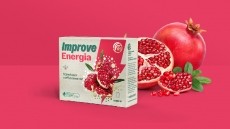Ginseng and guarana not up for energy drink-review
The European Commission itself said that, while energy drinks are regulated at member state-level and fall under their own respective responsibilities, it had not issued further requests to review other additives commonly used in energy drinks.
Energy drink makers have welcomed the responses, which they claim vindicate their existing guidelines on consumption.
Stimulant concern
Following growing sales on the global market, caffeinated energy drinks such as Red Bull and Burn have generated controversy over fears of the potential health impacts regarding caffeine levels and ingredients present.
However, two such ingredients commonly associated with these products, notably theamino acid taurine and D-glucurono-γ-lactone, were judged last week by the European Food Safety Authority (EFSA) to be safe for use at certain levels.
In a review conducted after European Commission prompting, EFSA’s Scientific Panel on Food Additives and Nutrient Sources added to Food (ANS) found no safety issues existed at average usage levels of 0.5 cans per day, based on 2003 data from the EFSA’s forerunner, the Scientific Committee on Food (SCF).
No safety issues were raised even at a 95th percentile upper limit of 1.4 cans consumed per day.
This was based on average dosage of 4000mg per litre of taurine and 2400mg/L of D-glucurono-γ-lactone, in a standard 250ml slimline can. For a 60kg person this would equate to 500mg of taurine and 300mg of D-glucurono-γ-lactone for average consumption and 1400mg of taurine and 840mg D-glucurono-γ-lactone for heavy users.
The ANS made the point that the review validated the safety of the two ingredients that are known to possess stimulant properties, but did not evaluate the safety of energy drinks, per se.
The British Soft Drinks Association (BSDA), which represents a number of the leading energy drink makers in the UK market, said that the EFSA verdict and the Commission’s opinions on wider ingredients backed the industry’s own recommendations.
“The industry has always recommended that as with all food and drink, energy drinks should be consumed in moderation as part of a balanced diet and active lifestyle,” said an association spokesperson.
Moderation message
In relation to EFSA’s guidelines on maximum consumption levels of 1.4 cans of beverages containing ingredients such as taurine a day, two global energy drink suppliers claimed that they already mirrored these concerns.
Red Bull, which supplies its namesake brand across the bloc, said that it was aware that consumer sensitivity to caffeine and stimulants varied on a personal level and was careful to list all its ingredients on its cans.
“There is also a statement on caffeine on each can of Red Bull as required in most EU countries, in the United States and many other places,” said group spokesperson Vera Dussausaye.
“Furthermore, we use the following statements ‘A consommer avec modération’ (drink with moderation) and ‘Déconseillé aux enfants et aux femmes enceintes’ (not recommended to pregnant women and children) on the French market, as agreed with the French authorities at the launch of Red Bull in France in 2008.”
Jamey Kirby, a spokesperson for Redux Beverages, which manufactures energy drinks such as the Cocaine brand in European and US markets, said that the company did not recommend its products to children and pregnant women in regards to use of taurine and its caffeine content.
“We recommend not drinking more than one per day unless you have a tolerance for caffeine,” he claimed.













